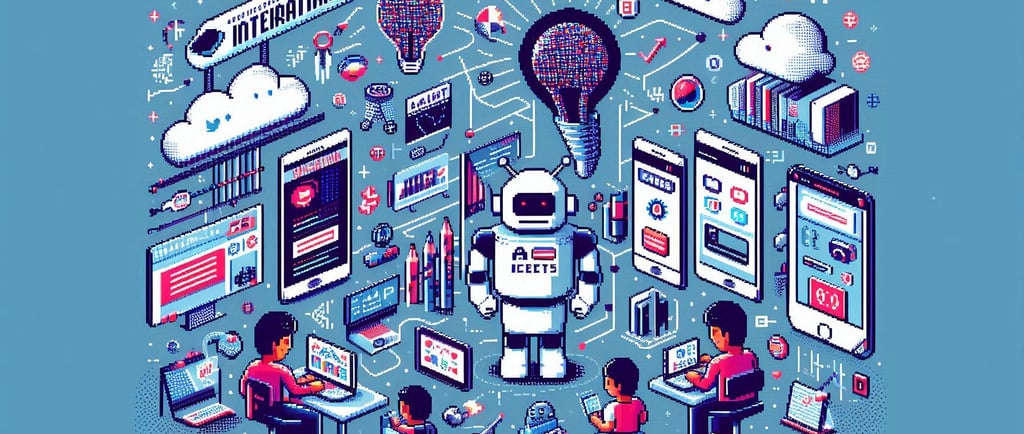Welcome to the Agentic AI Era: What Happens When Bots Use the Internet, Not Humans?
AI agents—personalized assistants that can navigate the web and apps on your behalf—are poised to reshape how we interact with digital services. Analysts warn this shift could undermine traditional internet economics, as bots, not humans, become the primary consumers of content. While the convenience is promising, the rise of agentic AI raises serious concerns about transparency, economic disruption, and the reliability of automated decisions.
AGENTSFUTURE
The AI Maker
7/24/20252 min read


As we march deeper into the age of artificial intelligence, a new frontier is taking shape: AI agents—personalized digital assistants designed to act on your behalf across apps, services, and devices. These agents are the next big step in the generative AI boom, promising to automate not just content or code, but decisions themselves. Think of them as smarter, more autonomous versions of Siri or Alexa, capable of navigating the web, booking your travel, comparing prices, and even summarizing your news—all without your direct involvement.
But if that vision becomes a reality—and it’s already starting to, with early versions emerging in tools like OpenAI’s GPT-powered agents, Google’s Gemini, or Anthropic’s Claude—it will fundamentally change how the internet operates.
That’s the warning from analysts Mark Shmulik and Nikhil Devnani at Bernstein, as reported by Business Insider. Their thesis: if AI agents become the dominant users of the internet, the web will begin catering to machines rather than humans. It’s not just a shift in user experience—it’s a full-scale economic disruption.
Here’s why: today, websites, apps, and content creators design experiences to attract and retain human attention. Ad revenue, engagement metrics, and subscription models all rely on people seeing and interacting with digital content. But what happens when your AI agent skims the headlines for you, compares the top three rideshare prices, or even negotiates your insurance rate—without you ever clicking a thing?
In that scenario, ads don’t get viewed. News isn’t browsed. Brands aren’t engaged with. The result? As Shmulik and Devnani put it, “the internet will go dark”—not literally, but economically. If bots are the new gatekeepers, they become the economic power brokers, choosing what content and services you consume.
It’s a seismic shift. Today’s tech ecosystem is driven by aggregators—think Google, Amazon, and Meta—who control access to users. Tomorrow’s might be dominated by whoever controls the AI agents making decisions on our behalf.
This new “agentic” model could spell trouble for industries built around advertising and individual user engagement. More concerning still is the risk of bad recommendations: What if your AI agent, tasked with handling medical questions or financial planning, makes a poor call? The line between helpful automation and catastrophic misfire becomes razor-thin.
Despite these risks, the investment frenzy is already underway. Companies are racing to stake their claim in this new world—where intelligent assistants may one day become our default interface for the internet.
In short, we’re standing at the edge of a major technological and economic turning point. Whether the Agentic AI era leads us to greater convenience or unintended chaos will depend not only on technical progress, but on how we choose to shape the internet of tomorrow—for humans and their digital proxies.
Your Data, Your Insights
Unlock the power of your data effortlessly. Update it continuously. Automatically.
Answers
Sign up NOW
info at aimaker.com
© 2024. All rights reserved. Terms and Conditions | Privacy Policy
